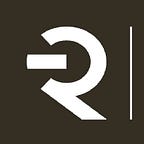Understanding Bad Debt in Healthcare: The Role of Receivable Purchasing Groups and Recovery Agencies
The US healthcare sector, like any other industry, has its share of financial challenges. Among these challenges is the problematic issue of bad debt. For anyone new to Revenue Cycle Management (RCM), the term ‘bad debt’ refers to amounts owed to a healthcare provider that are considered uncollectable. The reasons for this can range from financial hardship on the patient’s part to billing discrepancies. In such situations, the role of bad debt receivable purchasing groups and bad debt recovery agencies becomes crucial. This article will delve into the intricacies of bad debt in healthcare and how these entities are pivotal in mitigating its impact.
What is Bad Debt in Healthcare?
Before we delve into the solution providers, let’s understand the problem in depth. When patients receive medical care, they typically incur a fee for the services provided. Health insurance often covers a significant portion of this fee but not always the entire amount. The remaining balance is the patient’s responsibility. If a patient fails to settle this balance, and the healthcare provider deems this amount as uncollectable, it’s termed as ‘bad debt.’
Bad Debt Receivable Purchasing Groups: Turning Liabilities into Assets
Enter bad debt, receivable purchasing groups. These organizations buy uncollectable debts from healthcare providers at a fraction of their face value. By doing so, they offer hospitals and clinics a way to instantly recover some of the money they would otherwise write off.
Once these groups purchase the debt, they assume the responsibility of collecting the amount owed. Their profit comes from any difference between the amount they’ve paid for the debt and the amount they manage to collect.
Bad Debt Recovery Agencies: The Recovery Experts
Sometimes, instead of selling their uncollectable debts, healthcare providers opt to partner with a bad debt recovery agency. These agencies specialize in collecting debts on behalf of their clients. With an arsenal of tools, legal knowledge, and strategies, they increase the chances of retrieving the owed amount.
These agencies typically work on a commission basis. This means they only earn when they successfully recover the debt, ensuring they are motivated to do their best.
The Rising Cost
The cost of healthcare is continually rising. Simultaneously, an increasing number of patients struggle to settle their medical bills, leading to an uptick in bad debt for healthcare providers. As a result, the services of bad debt receivable purchasing groups and recovery agencies are more critical than ever.
By converting potential financial losses into recovered funds, these entities help stabilize the financial health of medical institutions, ensuring they can continue to provide quality care to their patients.
Bad debt is an unwelcome reality in healthcare. However, thanks to the intervention of bad debt receivable purchasing groups and bad debt recovery agencies, healthcare providers have viable strategies at their disposal to address this challenge. By understanding the intricacies of this system and leveraging the expertise of these professionals, provide3rs can navigate the complexities of bad debt more effectively.
